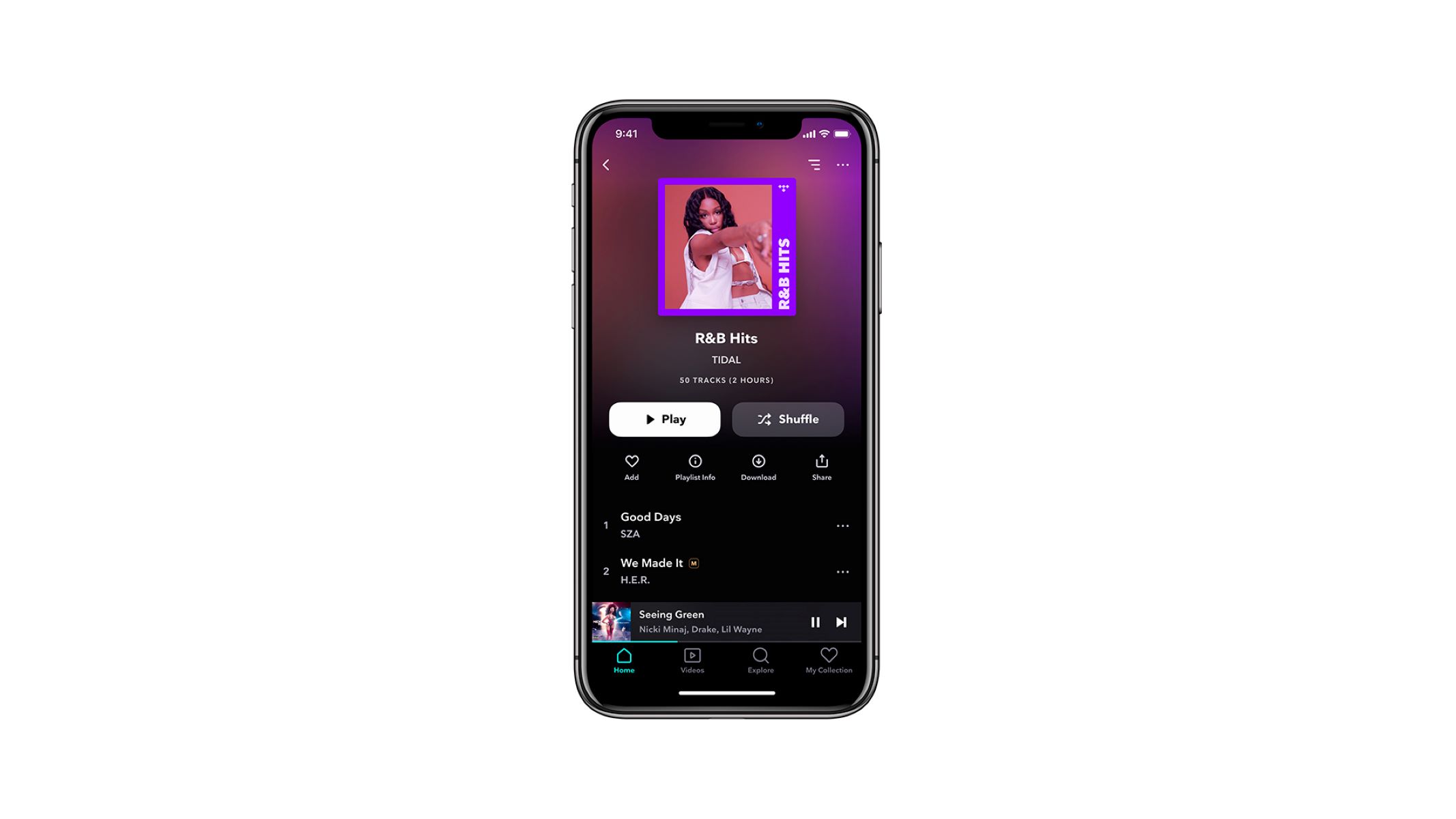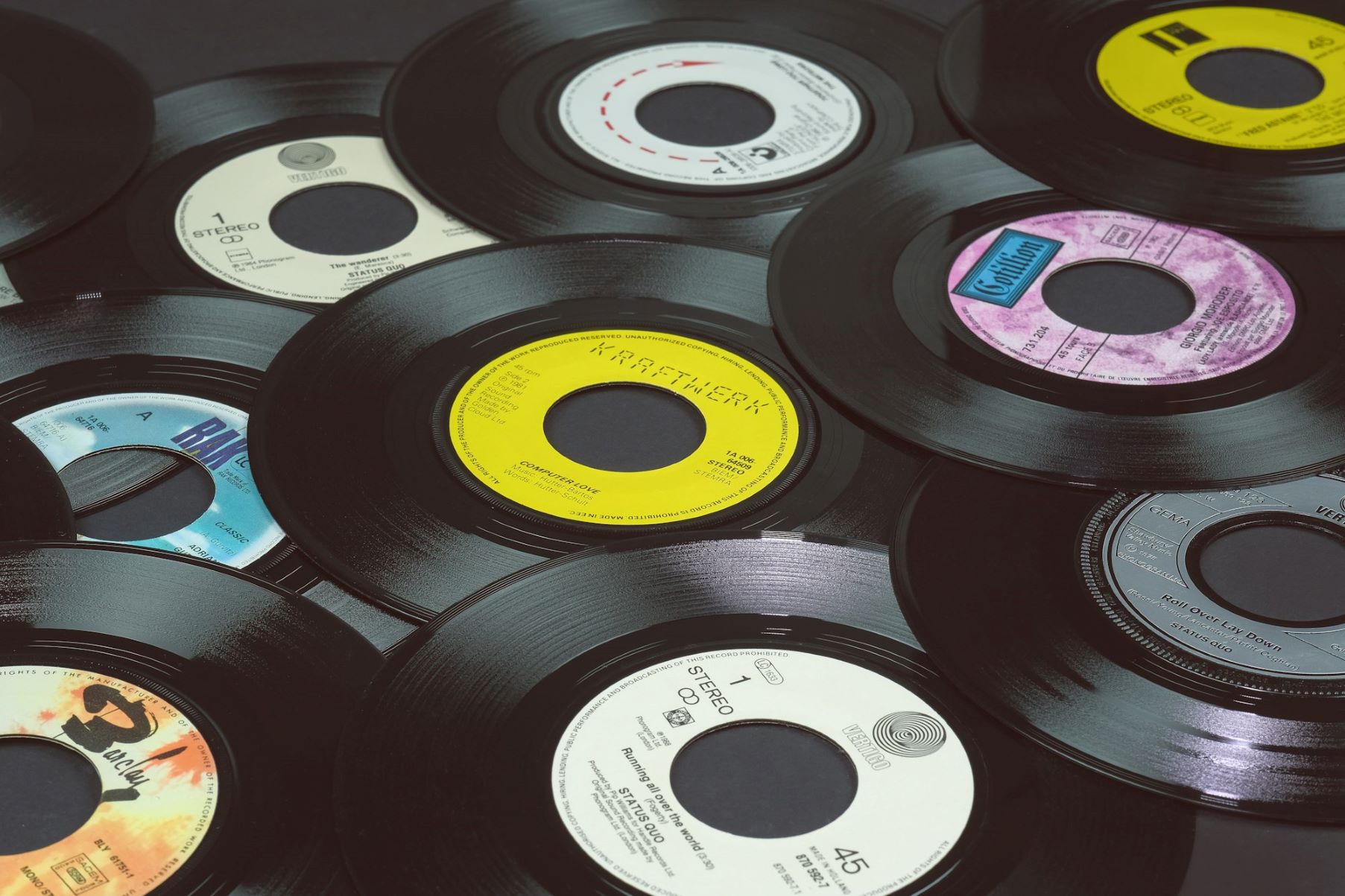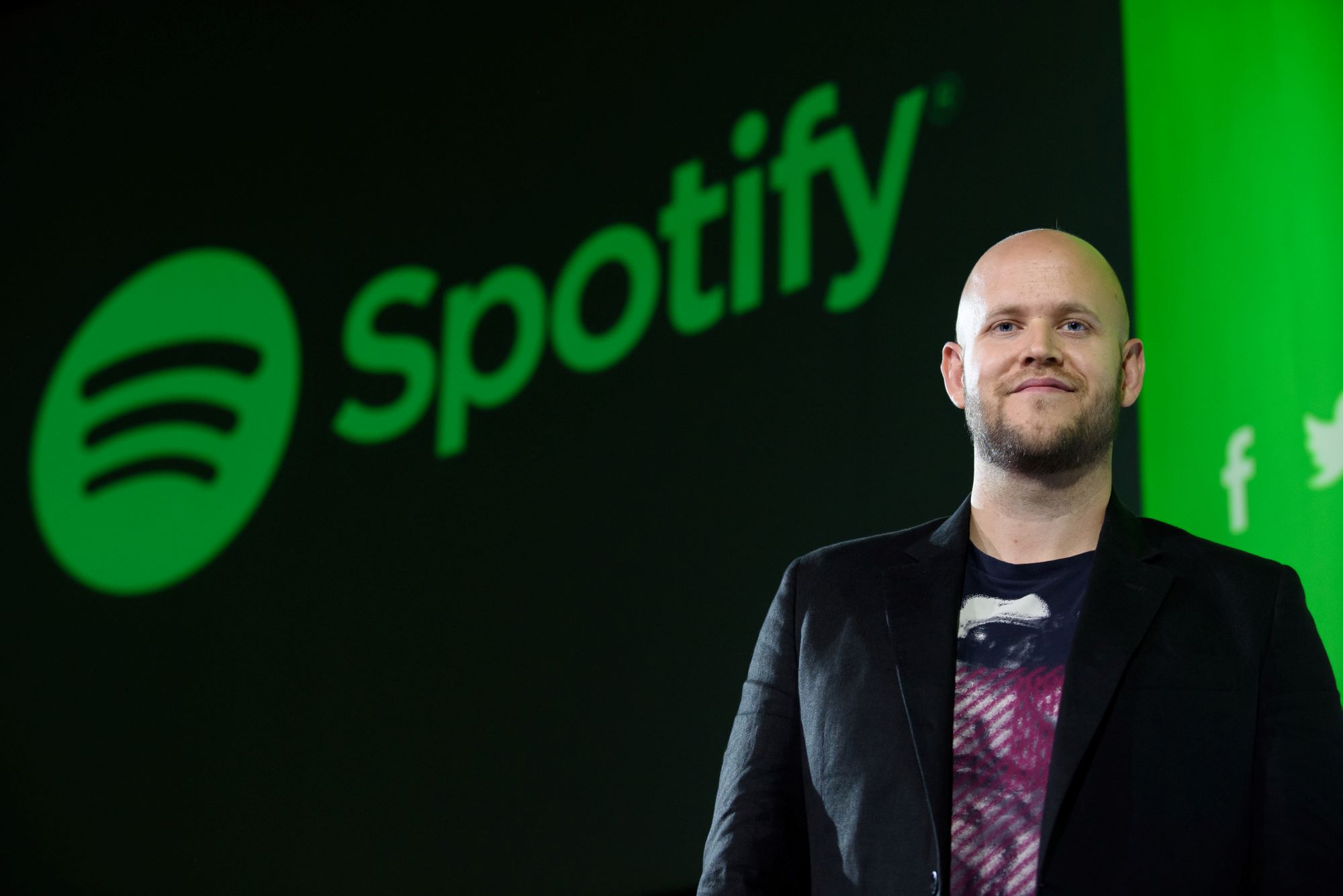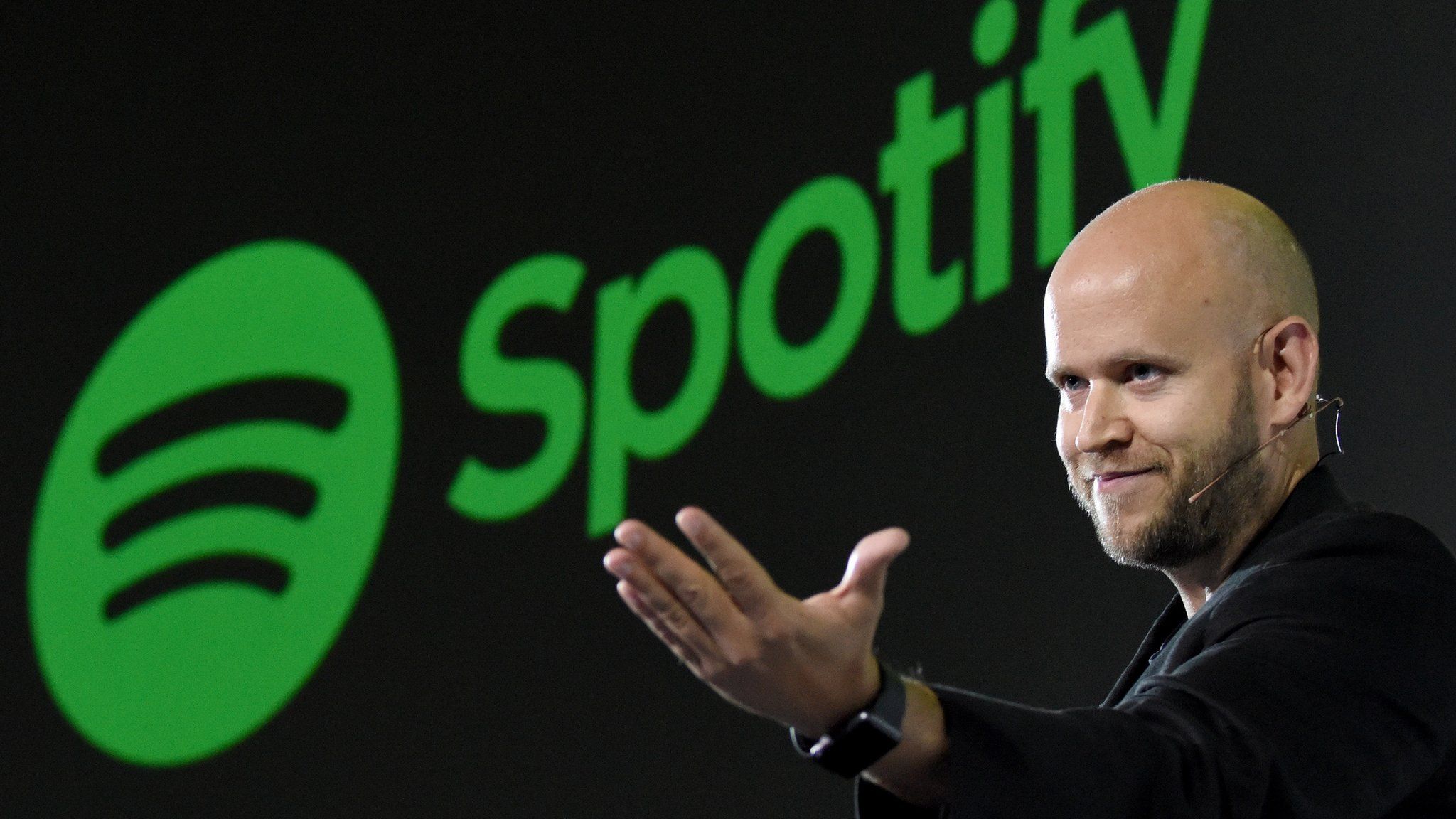Home>Devices & Equipment>Streaming>How Do Record Labels Distribute Music To Streaming Services


Streaming
How Do Record Labels Distribute Music To Streaming Services
Published: March 7, 2024
Learn how record labels distribute music to streaming services and maximize their reach. Understand the process and strategies for effective streaming distribution.
(Many of the links in this article redirect to a specific reviewed product. Your purchase of these products through affiliate links helps to generate commission for AudioLover.com, at no extra cost. Learn more)
Table of Contents
Introduction
The music industry has undergone a remarkable transformation with the advent of streaming services. These platforms have revolutionized the way music is consumed, allowing listeners to access an extensive library of songs at their fingertips. Behind the scenes, record labels play a pivotal role in ensuring that music reaches these streaming services, facilitating the connection between artists and their audience.
In this article, we will delve into the intricate process of how record labels distribute music to streaming services. From direct distribution to aggregator services and label-owned platforms, there are various avenues through which music is made available to the vast audience of streaming platforms. Understanding these distribution methods provides insight into the dynamic landscape of the music industry and the efforts involved in bringing music to the ears of listeners worldwide.
As we explore the mechanisms of music distribution to streaming services, we will uncover the diverse strategies employed by record labels to optimize the visibility and accessibility of music. This journey will shed light on the intricate web of partnerships, technological integrations, and strategic decisions that underpin the seamless delivery of music to the digital realm.
Join us as we unravel the intricate tapestry of music distribution, gaining a deeper appreciation for the collaborative efforts that enable artists to share their creativity with the world. Through this exploration, we aim to provide a comprehensive understanding of the multifaceted process through which music transcends physical boundaries and resonates across the digital landscape.
Direct Distribution
Direct distribution involves record labels directly providing music to streaming services without intermediaries. This method empowers labels to maintain full control over the distribution process, allowing them to forge direct relationships with streaming platforms. By leveraging direct distribution, record labels can exercise greater autonomy in negotiating terms, optimizing content delivery, and accessing detailed performance analytics.
One of the primary advantages of direct distribution is the ability for record labels to retain a higher percentage of the revenue generated from music streams. By bypassing aggregator fees or third-party commissions, labels can maximize their earnings and allocate resources more strategically to support artists and foster creative endeavors. Furthermore, direct distribution enables labels to swiftly respond to market trends, adapt promotional strategies, and tailor content to specific audience segments, thereby enhancing the overall impact of music releases.
In addition, direct distribution empowers record labels to curate a personalized brand image and narrative, reinforcing their identity as tastemakers and industry influencers. This direct engagement with streaming services allows labels to showcase their diverse roster of artists, promote exclusive content, and craft compelling narratives around music releases. Such strategic storytelling can captivate audiences, foster brand loyalty, and amplify the visibility of artists within the digital ecosystem.
Moreover, direct distribution facilitates seamless communication between record labels and streaming platforms, enabling efficient resolution of technical issues, content optimizations, and the implementation of innovative features. This direct line of communication fosters a collaborative environment, where labels can actively participate in shaping the user experience, exploring promotional opportunities, and harnessing data insights to refine their music distribution strategies.
By embracing direct distribution, record labels can harness the full potential of streaming services, leveraging their creative prowess and industry expertise to amplify the reach and impact of music releases. This approach not only empowers labels to navigate the digital landscape with agility and precision but also fosters a symbiotic relationship between artists, labels, and streaming platforms, ultimately enriching the music ecosystem for listeners worldwide.
Aggregator Distribution
Aggregator distribution serves as a pivotal conduit through which record labels disseminate music to a myriad of streaming services. This method involves leveraging specialized aggregators, which act as intermediaries between record labels and a diverse array of digital platforms. Aggregators streamline the distribution process by consolidating music from various labels and independent artists, offering a centralized gateway for content delivery to multiple streaming services.
One of the primary advantages of aggregator distribution lies in its ability to simplify the complexities of music delivery, offering a streamlined and efficient mechanism for labels to reach a broad spectrum of streaming platforms. By partnering with aggregators, record labels can transcend the logistical challenges associated with individualized submissions to numerous streaming services, thereby optimizing the reach and accessibility of their music catalog.
Aggregators also play a pivotal role in providing labels with comprehensive analytics and performance insights, empowering them to gain a nuanced understanding of audience engagement, geographic trends, and consumption patterns across diverse streaming platforms. This data-driven approach equips record labels with valuable insights to refine their promotional strategies, tailor content to specific audience segments, and optimize the discoverability of their music within the digital landscape.
Furthermore, aggregator distribution offers a compelling avenue for independent artists and emerging labels to amplify their presence within the competitive realm of streaming services. By leveraging the collective resources and expertise of aggregators, artists can benefit from enhanced visibility, promotional support, and strategic guidance to navigate the intricacies of digital music distribution.
Aggregators also serve as advocates for fair compensation, ensuring that artists and labels receive equitable remuneration for their music streams across various platforms. This advocacy for transparent and equitable revenue distribution underscores the pivotal role of aggregators in safeguarding the interests of creators and fostering a sustainable ecosystem for music dissemination.
In essence, aggregator distribution stands as a cornerstone of the modern music industry, offering a harmonious synergy between record labels, artists, and streaming services. By harnessing the collective strength and expertise of aggregators, record labels can amplify the reach, impact, and resonance of their music releases, enriching the digital landscape with a diverse tapestry of musical expressions.
Digital Distribution Companies
Digital distribution companies serve as instrumental allies for record labels in navigating the intricate terrain of music dissemination across streaming services. These specialized entities are dedicated to optimizing the reach, visibility, and impact of music releases, offering a comprehensive suite of services tailored to the dynamic demands of the digital music landscape.
One of the primary functions of digital distribution companies is to provide record labels with a robust infrastructure for delivering music to a diverse array of streaming platforms. By leveraging their extensive network of partnerships and integrations, these companies streamline the process of content delivery, ensuring that music reaches global audiences with efficiency and precision. This expansive reach empowers record labels to transcend geographical boundaries, enabling their music to resonate across international markets and diverse cultural landscapes.
Moreover, digital distribution companies play a pivotal role in empowering record labels with comprehensive data analytics and performance insights. By harnessing advanced analytics tools and consumption metrics, these companies equip labels with actionable intelligence to refine their promotional strategies, optimize content curation, and tailor their music releases to resonate with specific audience segments. This data-driven approach enables record labels to make informed decisions, harnessing the power of insights to amplify the discoverability and engagement of their music within the digital realm.
Furthermore, digital distribution companies serve as advocates for equitable compensation, championing the rights of artists and labels to receive fair remuneration for their music streams. By fostering transparent revenue distribution models and advocating for industry-wide standards, these companies contribute to the sustainability and prosperity of the music ecosystem, ensuring that creators are duly recognized and rewarded for their artistic contributions.
In addition, digital distribution companies offer a diverse array of promotional and marketing services, empowering record labels to amplify the visibility and resonance of their music releases. From targeted promotional campaigns to strategic playlist placements and cross-platform integrations, these companies provide labels with the tools and expertise to elevate the impact of their music within the competitive landscape of streaming services.
In essence, digital distribution companies stand as indispensable allies for record labels, offering a harmonious fusion of technological prowess, industry expertise, and strategic guidance. By harnessing the specialized services and resources provided by these companies, record labels can navigate the digital music landscape with agility and precision, amplifying the reach, impact, and resonance of their music releases across streaming services worldwide.
Label-Owned Distribution Platforms
Label-owned distribution platforms represent a strategic paradigm through which record labels exercise direct control and oversight over the dissemination of music to streaming services. These proprietary platforms serve as bespoke conduits for labels to curate, optimize, and deliver their music catalog to a global audience, fostering a seamless and immersive experience for listeners while empowering labels with unparalleled autonomy and creative latitude.
One of the defining attributes of label-owned distribution platforms lies in their capacity to encapsulate the unique ethos, narrative, and artistic identity of record labels. By leveraging these platforms, labels can craft a cohesive and immersive brand experience, showcasing their diverse roster of artists, curating exclusive content, and fostering a sense of community and engagement among listeners. This strategic storytelling not only amplifies the resonance of music releases but also reinforces the distinct brand narrative of record labels, fostering a deeper connection with audiences within the digital realm.
Moreover, label-owned distribution platforms empower record labels with granular control over content curation, promotional initiatives, and audience engagement strategies. This level of autonomy enables labels to tailor the user experience, optimize content discoverability, and implement innovative features that resonate with the preferences and behaviors of their audience. By harnessing this creative freedom, record labels can amplify the impact of their music releases, fostering a dynamic and immersive ecosystem that captivates and resonates with listeners on a profound level.
Furthermore, label-owned distribution platforms serve as catalysts for innovation, enabling record labels to experiment with novel content formats, interactive experiences, and immersive storytelling techniques. This spirit of innovation not only enriches the user experience but also positions record labels as trailblazers within the digital music landscape, fostering a culture of creativity, exploration, and artistic expression that transcends traditional paradigms.
In essence, label-owned distribution platforms stand as testament to the visionary prowess of record labels, encapsulating their commitment to artistic excellence, audience engagement, and creative innovation. By harnessing these platforms, record labels can orchestrate a symphony of artistic expression, amplifying the reach, impact, and resonance of their music releases while fostering a dynamic and immersive ecosystem that captivates and resonates with audiences worldwide.
Conclusion
In conclusion, the distribution of music to streaming services encompasses a multifaceted tapestry of strategies, partnerships, and technological integrations that underpin the seamless delivery of music to the digital realm. From direct distribution and aggregator services to digital distribution companies and label-owned platforms, record labels navigate a dynamic landscape of opportunities to optimize the visibility and accessibility of music releases.
The evolution of music distribution has transcended traditional paradigms, empowering record labels to forge direct relationships with streaming platforms, curate personalized brand narratives, and harness the power of data-driven insights to refine their promotional strategies. Direct distribution offers labels unparalleled autonomy and control, enabling them to maximize revenue, respond to market trends with agility, and actively shape the user experience within streaming services.
Aggregator distribution serves as a pivotal conduit for labels to streamline content delivery, gain comprehensive analytics, and amplify the presence of artists within the digital ecosystem. By partnering with aggregators, record labels transcend logistical complexities, benefit from enhanced visibility, and advocate for equitable compensation, fostering a sustainable ecosystem for music dissemination.
Digital distribution companies stand as instrumental allies, providing record labels with a robust infrastructure for global content delivery, data-driven insights, and strategic promotional support. These companies empower labels to navigate the digital music landscape with precision, amplifying the reach and resonance of their music releases while championing the rights of artists to receive fair remuneration for their creative contributions.
Label-owned distribution platforms represent a strategic paradigm through which record labels exercise direct control and oversight over the dissemination of music. These platforms encapsulate the unique ethos of labels, fostering a cohesive brand experience, empowering labels with granular control over content curation, and serving as catalysts for innovation within the digital music landscape.
In essence, the distribution of music to streaming services is a testament to the collaborative efforts of record labels, artists, and industry partners to transcend physical boundaries and resonate across the digital landscape. By embracing diverse distribution methods, record labels amplify the impact of their music releases, enriching the digital ecosystem with a diverse tapestry of musical expressions that captivate and resonate with audiences worldwide.











